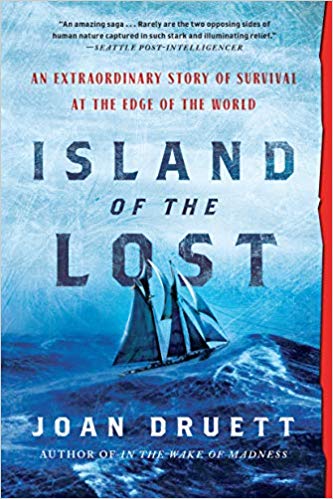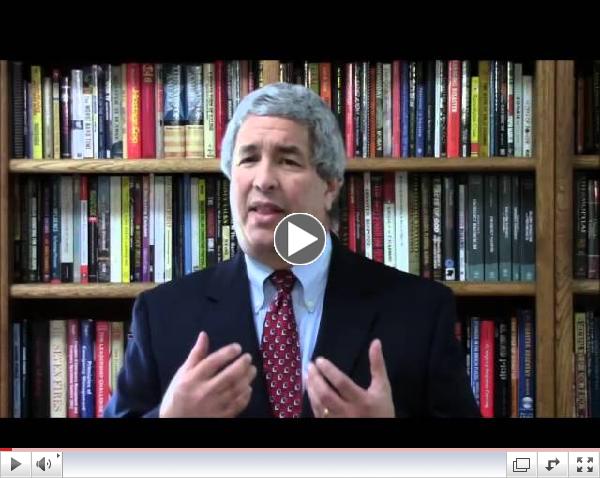|
Exploring Emergency Management & Homeland Security
|

Teaching ICS - We're Not There Yet
by Timothy (Tim) Riecker
Over the past week I've been neck deep in the
updated ICS-300 and ICS-400 curriculum as I prepare to deliver these courses for a client. While these courses, especially the ICS-300, have made some significant improvements from past versions, I've found what I perceive to be another challenge, perhaps a gap, in our collective approach to teaching incident management.
While ICS training should obviously focus on ICS, it seems we are missing an opportunity to provide some critical knowledge on emergency management (at least the response functions of EM) and incident management as an overall concept, especially when we get to the level of ICS-300. I'm betting that most people taking the ICS-300 class know very little about emergency management and even less about the overall concepts of incident management. While the ICS-300 is a good and worthwhile course for a great many supervisors within the ranks of public safety, it seems the requirement for ICS training puts a lot of this out of context.
While this might be fine for the 'typical' tactician, or even most unit leaders operating within an ICS organization, knowledge of what emergency management is and does, as well as the underlying concepts of incident management, will improve the ability of the response organization as a whole to function. I echo this same sentiment for the EOC courses that have been developed.
While we strive to have the growth of many public safety professionals to include ICS position-specific training, we also have to be realistic in recognizing that most jurisdictions simply don't have the capacity to make this happen. Instead, they rely on a more ad-hoc incident management approach, which will generally serve them well. Of course, the most challenging time is transitioning from the more 'routine' type 5 and 4 incidents into the larger extended response operations of a type 3 incident. This is when people need to think beyond the normal approach of a largely tactics-focused response, to a system which still necessarily includes tactics, but builds a response organization meant to support and sustain those tactical operations. What they learn from the ICS-300 may be the most amount of training they have outside of tactical applications.
___________________________________________
____________________________________________
Tim Reicker is a founding member, partner and principal consultant with Emergency Preparedness Solutions, LLC, a private consulting firm serving government, businesses, and not for profit organizations in various aspects of emergency and disaster preparedness.
|
|
Bernstein Crisis Management
|
 4 Useful Tips For When The Media Is Reaching Out To You 4 Useful Tips For When The Media Is Reaching Out To You
By Erik Bernstein
Reporters and media of all kinds are inevitable sources of stress for many crisis management situations, but that doesn't mean it's healthier to shut them out. With the modern 24/7 news cycle and literally millions of places for information to be shared even small issues often mean contacts from media outlets today. The next time the media is reaching out to you, remember these four tips from our expert team of crisis management consultants.
- If you really are severely pressed for time, put on your "calm and confident" face and try telling the reporter that you'd absolutely love to grant an interview but there just isn't enough time right now, and would they like to get their story via phone or email in the near future?
- If a certain subject needs to stay under wraps, pull that "calm and confident" face out again and tell them you can't talk about that just yet, but as soon as you're able they'll be the first to know.
- If they're pressing for an in-person interview and you'd rather be in control, put on that face once again and tell them you would just love to do an email interview instead.
- If legal issues really do prevent you from discussing a specific topic, let the reporter know you wish you could, but that your attorney has advised against discussing anything related to litigation, but perhaps some statement would be released at a later point.
A flat, "no comment" should almost never be your answer to members of the media, and strike the condescending smirk and angry scowl from your facial vocabulary. There are many cases where you can, and should, deny a request for further explanation, but always do your very best to offer an alternative, and (noticing a theme yet?) make sure you look calm and confident doing it!
______________________________________________
Erik Bernstein is Vice President of Bernstein Crisis Management, a specialized firm dedicated to providing holistic strategies for managing crisis situations.
|
|
|
| Introduction to Emergency Planning |
This a short video developed by FEMA aimed at young children. The video explains the difference between a hazard, an emergency, and a disaster in very simple language. It's just one of the many tools available on the Ready.gov website. |
The following are excerpts from my blog
Canton on Emergency Management. Please visit my blog to see the rest of my articles.
Killing the messenger supposedly went out of fashion years ago, yet in our stupidity we still attack the powerless representatives of major companies.
|

M
y Blogs
Follow Me
|
|

Welcome to the August edition of edition of Emergency Management Solutions.
This month Tim Riecker looks at an opportunity we might be missing by failing to integrate emergency management concepts
into ICS training
. Erik Bernstein offers some tips on dealing with media inquiries that help put you in control of the interview. My own modest contribution is some of the lessons I have learned over the years in dealing with the media.
Remember that September is National Preparedness Month. If you need help getting a campaign together, check out the Resources article under Professional Development.
Regards,
|
|
_
________________________________________________
Journalists Are Not Your Friends!
But Are They Really The Enemy?
_________________________________________________
Over the years I've attended any number of media courses taught by emergency managers whose theme seems to be that journalists are the bad guys. They use phrases like, "You need to feed the sharks" and tell you horror stories about careers ruined by bad media stories. The upshot is that we teach media avoidance rather providing the skills needed to effectively work with the media.
This is wrong for any number of reasons. Avoiding the media ultimately means that your side of the story isn't being told and that the media is getting their information from other sources rather than directly from you.
To a certain extent, it is true that journalists are not your friends. They are, by and large, professionals doing their job in as impartial a manner as they can. But that doesn't mean you can't develop relationships that allow you to work together. After all, they are looking for a story to tell and you have a story you want told.
______________________________
_______________________
________
If you are having trouble viewing my featured article, try clicking on the link at the top of the page. You can always find my articles in the white paper section of my blog site, Canton on Emergency Management.
|
|
Resources
National Preparedness Month
September is National Preparedness Month, an opportunity to promote family and community disaster and emergency planning. The 2019 theme is "Prepared, Not Scared."
FEMA's
Ready.gov website offers a number of tools to help you develop a public awareness campaign, such as social media graphics, logos, videos, and public service announcements.
Each week has a specific theme, such as Save Early for Disaster Costs, which is backed up web resources and pre-scripted social media posts.
Planning Considerations: Evacuation and Shelter-in-Place Guidance for State, Local, Tribal, and Territorial Partners
FEMA has released
Planning Considerations: Evacuation and Shelter-in-Place: Guidance for State, Local, Tribal, and Territorial Partners
.
The document draws upon the collective experience of those partners to provide relevant concepts, principles, and guidance as a resource for emergency managers and planners.
FEMA will host a series of 60-minute webinars to discuss the document, related efforts, and answer participants' questions. The webinars will be open to the whole community.
To view the document and for additional webinar information, please visit
https://www.fema.gov/plan.
___________________________________
Professional Development Opportunities
Nov. 15-20, 2019
Savannah, Georgia
The goal of the IAEM Annual Conference is to improve knowledge, competency level and collaborative skills. IAEM accomplishes this by attracting relevant high-profile speakers to address current topics and practical solutions.
|
|
 Island of the Lost: An Extraordinary Story of Survival At The Edge of the World Island of the Lost: An Extraordinary Story of Survival At The Edge of the World
On January 3, 1864, the schooner
Grafton was wrecked on Auckland Island. The five man crew would survive for some 18 months on one of the most inhospitable places in the world, eventually building a vessel to carry them to safety.
Four months later, the
Invercauld was wrecked far to the south on the same set of islands. Nineteen of the crew made it to the shore. When rescue came a year later, only three men were still alive.
Why did one group survive while most of another perish? Why do some people survive a crisis while others die? The answer lies many times with leadership. In the case of the
Grafton, the captain, despite suffering from severe depression, took an active role in keeping his crew functioning as a team. The captain of the
Invercauld abrogated all responsibility and only survived through the efforts of one extraordinary seaman.
While not a book specifically about emergency management,
Island of the Lost is a excellent study of leadership in a crisis and the importance of inspiring a shared vision.

______________________________________
|
Emergency Management: Concepts and Strategies for Effective Programs
Second Edition
AVAILABLE NOW!
|
|
Need a speaker for your next conference? I offer keynotes, seminars and workshops.
 |
|
Three Reasons Why I'm the Right Speaker for Your Conference
|
|
|
Speaking Engagements
Disasters-Natural and Man-Made: Strategies on How to Train Workers to Stay Safe and How to Keep Your Business Running
S
eptember 19, 2019, 10:30 AM Pacific
Managing Crisis: Why Some Succeed and Others Fail
October 7, 2019, 12 PM Pacific
Learning From The Past: What We Remember, What We Forget
November 19, 2019
Savannah, GA
|
|
| |
|